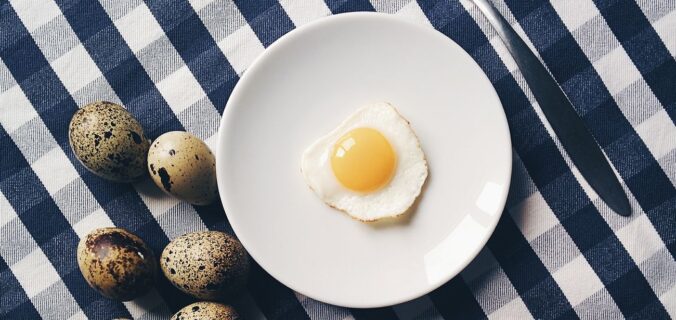Are you looking to raise happy and healthy quail that produce delicious meat and eggs? In this blog post, I’m going to be sharing with you some tips and tricks on feeding quail the right diet for optimal meat and egg production.
First off, let’s talk about the different types of quail diets. Quail can be fed a commercial feed, a homemade feed, or a combination of both. Commercial feed is convenient and easy to use, but it can be expensive and may contain additives and preservatives that you may not want in your quail’s diet. Homemade feed allows you to have more control over the ingredients and can be more cost-effective in the long run.
No matter which type of diet you choose, it’s important to make sure that it contains the right balance of nutrients. Quail require a high-protein diet, with a protein content of at least 20%. This is because they are fast-growing birds that require a lot of protein for muscle and feather development.
In addition to protein, quail also require a source of carbohydrates, fats, vitamins, and minerals. Carbohydrates provide energy, while fats are important for insulation and energy storage. Vitamins and minerals are essential for a variety of bodily functions, including bone development, immune function, and egg production.
Feeding Quail Commercial Feed
When it comes to commercial feeds, make sure to choose a high-quality feed that is specifically formulated for quail. Some commercial feeds are designed for poultry in general and may not have the right balance of nutrients for quail. Look for a feed that has at least 20% protein and a balanced ratio of other nutrients.
Homemade Feed
If you choose to make your own feed, there are a variety of ingredients you can use. A basic quail feed recipe may include:
50% whole grains (such as wheat, barley, or oats)
20% protein source (such as soybean meal, fish meal, or dried insects)
20% calcium source (such as ground limestone or eggshells)
5% fat source (such as sunflower seeds or flaxseed)
5% vitamin and mineral mix (such as a commercial poultry vitamin and mineral supplement)You can adjust the proportions of each ingredient based on your quail’s specific needs and what ingredients are available to you.
It’s important to note that quail also require access to clean water at all times. Make sure to provide them with fresh water daily and clean their waterer regularly to prevent the buildup of harmful bacteria.
In addition to their main feed, quail can also benefit from occasional treats. Some good treat options include fresh fruits and vegetables (such as leafy greens, carrots, or berries), mealworms, or boiled eggs (which can also help boost their calcium intake). However, treats should be given in moderation and should not make up more than 10% of their overall diet.
Another factor to consider when feeding quail is their age and stage of life. Young quail require a higher protein content in their diet to support growth, while adult quail require a lower protein content to maintain their weight and health. Quail that are in the process of laying eggs also require a higher calcium content to support strong eggshells.
It’s also important to pay attention to your quail’s behavior and appearance. If they are consistently leaving their food uneaten, they may not be getting the nutrients they need or may be experiencing health issues. If they appear lethargic, have ruffled feathers, or are losing weight, they may also be experiencing health issues that require attention.
In conclusion, feeding quail a well-balanced diet is essential for optimal meat and egg production.
